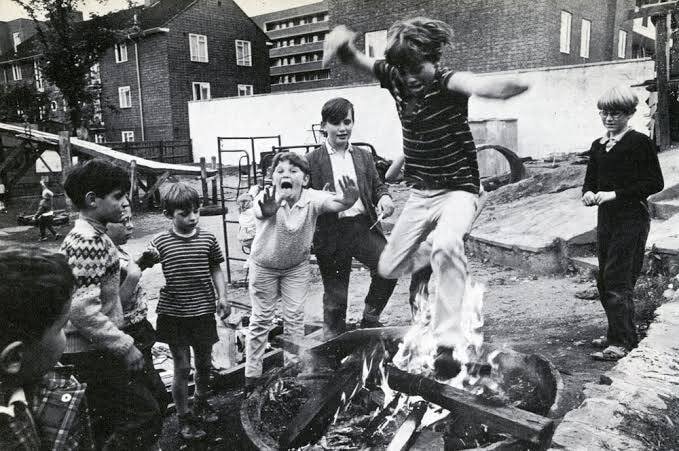In the over compartmentalised nature of time these days, including children’s time, play has suffered. To make play fit into part of the schedule, there is ever increasing need to justify the need for it, be it physical health, education, or therapy. In other words, an increasing perceived need to apply an adult agenda to it. This is often done with good intentions, sometimes not, but either way it has the potential to limit the actual multifarious nature of this thing called play. Whether or not the intentions in applying an adult agenda to play are good or bad, one thing is for sure and that is that play is becoming increasingly “delivered” to children in an entirely calculated and extrinsic way. As playworkers who ideally uphold the idea that play should be freely chosen, personally directed, and intrinsically motivated this presents somewhat of a problem.
In his later years, psychologist Lev Vygotsky purported the idea of Perezhivanie, a Russian word best translated as “a lived experience”. In simple terms Perezhivanie suggests that learning occurs more easily, or more meaningfully, when there is an emotional connection to the learning, due to the fact that a real experience has been had. In effect a penny drop moment. The only problem with this idea is that most Western interpretations of this to lead to quotes like "children learn more when the experience is a joy"... Now this statement is not wrong, but extremely limited in both understanding of play, and of experiences children are likely to have, and learn from.
Consider this quote by playworker Morgan Leichter-Saxby:
“Play gives us the chance to mediate between primary and secondary emotions - to experience anger, disgust, shame, happiness etc within the safety of a play frame we construct and control. This process can be risky emotionally as well as physically, for example when we swap insults with friends, or go through rituals of initiation or goodbye, or face our fears to climb a high platform and look out. As Dr. Spock said, “a child loves his play not because it is easy but because it is hard.” It is important to remember that what makes a particular element of play “hard” may not be visible from the outside”.
This quote paints a quite different and much broader idea of what could constitute a Perezhivanie moment experienced in play. In addition to potentially being a joyful moment, the moment might leave one red faced, flustered, frustrated, challenged or even angry and upset. These additional emotional connections that all children will experience in their play are equally important as the joyous ones and so children need to learn how to manage and deal with and overcome them. The challenge in children realizing these innate lessons however lies in the fact that adults, through their agendas are unlikely to extrinsically facilitate play that results in these sorts of emotions. This, in its essence is precisely why we need to allow play to remain intrinsic, to allow children to retain power over the content and intent of their play. Consider, what very real learning and occurrences of Perezhivanie moments may be squandered if we do not.
While discussing this very topic with playworker Marc Armitage he made the relevant statement… “If play is for anything in particular, the likelihood is that it acts as a mechanism that brings together numerous, sometimes seemingly unconnected, elements into one place at one time, and makes sense of each of them through the connections that are created from them as a whole. That means that when we see play through the lens of just one agenda, we are missing the very point that makes play such a powerful behaviour”. Agendas, especially when singular, are an extremely extrinsic force. Extrinsic agendas often lead to children being told what they should experience, not living the experience, and thus missing the opportunity to experience a Perezhivanie moment. As adults we must trust in the play process, we must remove ego and accept that in play, children will create situations which excite emotions when they are ready to tackle them and in ways they feel they can. This trust can come hard however as, in the words of John Holt:
“To trust children, we must first learn to trust ourselves… and most of us were taught as children that we could not be trusted”.
Angus Gorrie

